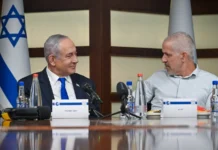On Yom Hashoah, there were a number of Holocaust stories on my Facebook feed, mostly personal testimonies of children and grandchildren of survivors. Thankfully, my own grandparents were spared those horrors. Their families had come to the United States well before that. But I still have a great story.
We called her Tante Ellie. Warm and witty, Elizabeth Brandt Kronenberg was so beloved by my extended family that we called her our “adopted cousin.” In her eighties, she chuckled at the idea that she “could still be adopted.” Yet she was genuinely touched by our affection.
Ellie Brandt was born into Berlin’s then thriving Jewish community. Her maiden name was originally Cohn, but her father didn’t want doors of opportunity to be slammed in his children’s faces. So he changed it to make it sound more German. Yet they were never so assimilated that they forgot who they were.
Ellie’s brother, Dr. Joel Brandt was a prominent family physician. One day, as he was walking back to his practice, he was stopped and roughed up by some Gestapo. They wanted to take him back to the station for “questioning.” Joel knew that few who went there ever returned. So he agreed to comply, but then politely asked them to go to his office and inform his patient, the ambassador, that Dr. Brandt would be detained. The jack-booted thugs apologized for the inconvenience and let him go his way.
That same night, Joel and Ellie attended the theatre where there was quite a buzz about an esteemed guest who was coming. The box seat was graced by none other than Chancellor Hitler himself. As you can imagine, their minds were not really on the show. During intermission, Joel stood off to one side and marked how erratically Hitler’s eyes darted about the house. Joel concluded that the man was not sane.
Ellie’s husband was Maximilian Kronenberg, a professor of physics and aerodynamics. He dedicated one of his books to her, writing, “This book is dedicated to my darling wife, Ellie, the most illogical and unscientific woman I know.” The Kronenbergs were very close friends with another professor, teaching in the same department, living on the same street and attending the same synagogue. His name was Albert Einstein.
Einstein is one of my personal heroes. So I once picked up an Einstein wall calendar filled with pictures and quotes. In one of those pictures, he is standing by the Grand Canyon on vacation with his wife and a group of unnamed friends. Looking closely, I realized that one of the friends pictured was my Tante Ellie.
In 1935, Germany passed a law that engineers were not allowed to leave the country. As fate would have it, Max Kronenberg happened on an academic tour of the US. America was still pretty isolationist in those days. And with so many other things going on, the passage of such a law would easily escape notice. Ellie had to get him a telegram warning him not to return to Germany. But telegrams were carefully censored. So she had to communicate in a code that he would understand, but the censors would not.
It had one word: Canada.
Max got the message. Before his visa expired, he went to Canada to have it renewed. With the drumbeats of war getting louder, he had little trouble getting a job designing aircraft and rockets to be used against the Third Reich. Max was able to get his wife, daughter and brother-in-law Joel out of Germany to safety in America. They begged their parents to emigrate as well, but their parents were proud German citizens. They just couldn’t believe that their neighbors would turn on them. Thus, they died in the camps.
And thanks to their quick thinking, that’s four fewer victims of the Holocaust. That’s four fewer names at Yad Vashem. And I got to grow up with fond memories of my Tante Ellie, the warm, witty woman who always had a story to tell, greeted me with a soft kiss and called me “my friend.”
Republished from San Diego Jewish World


























